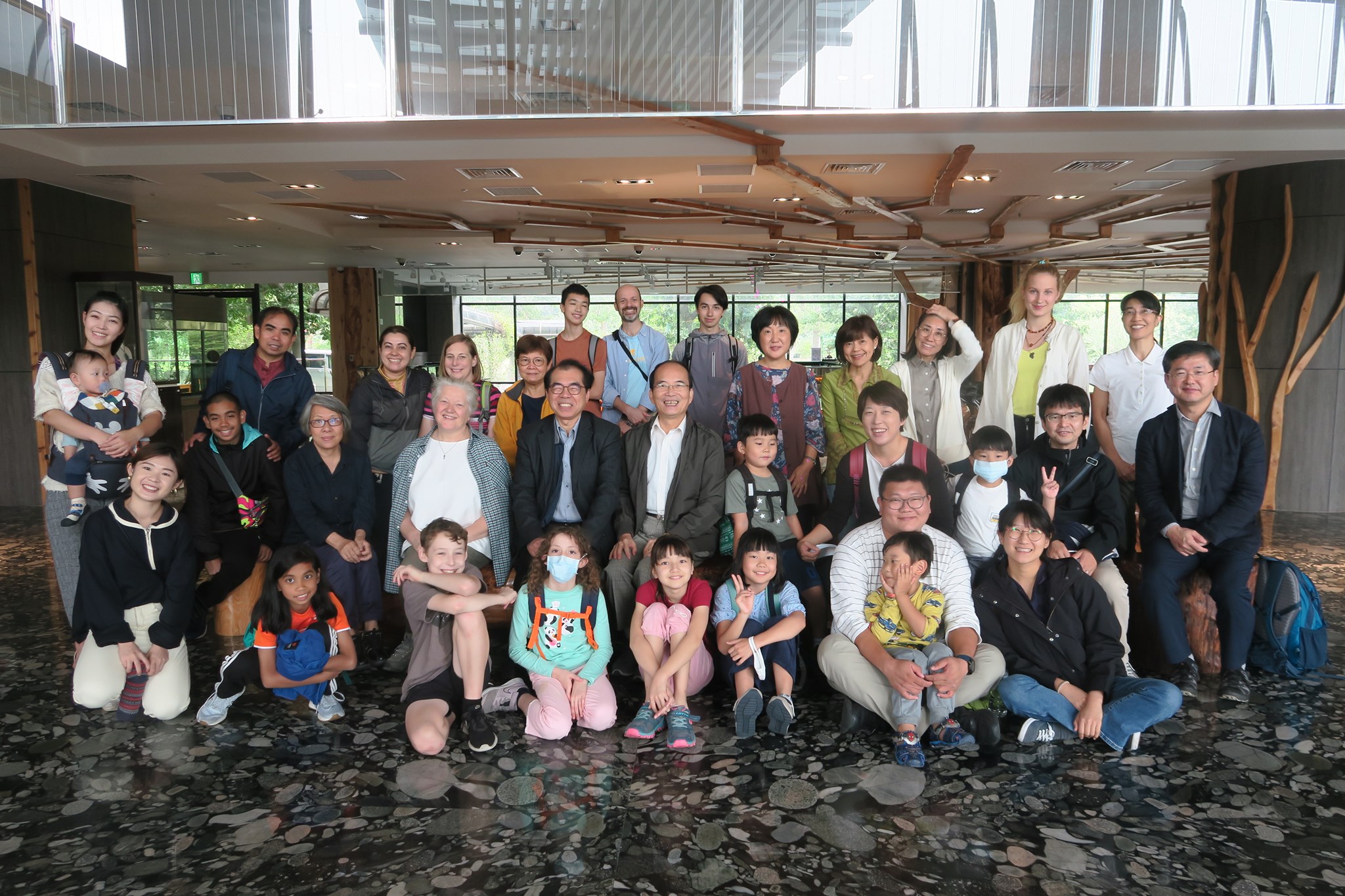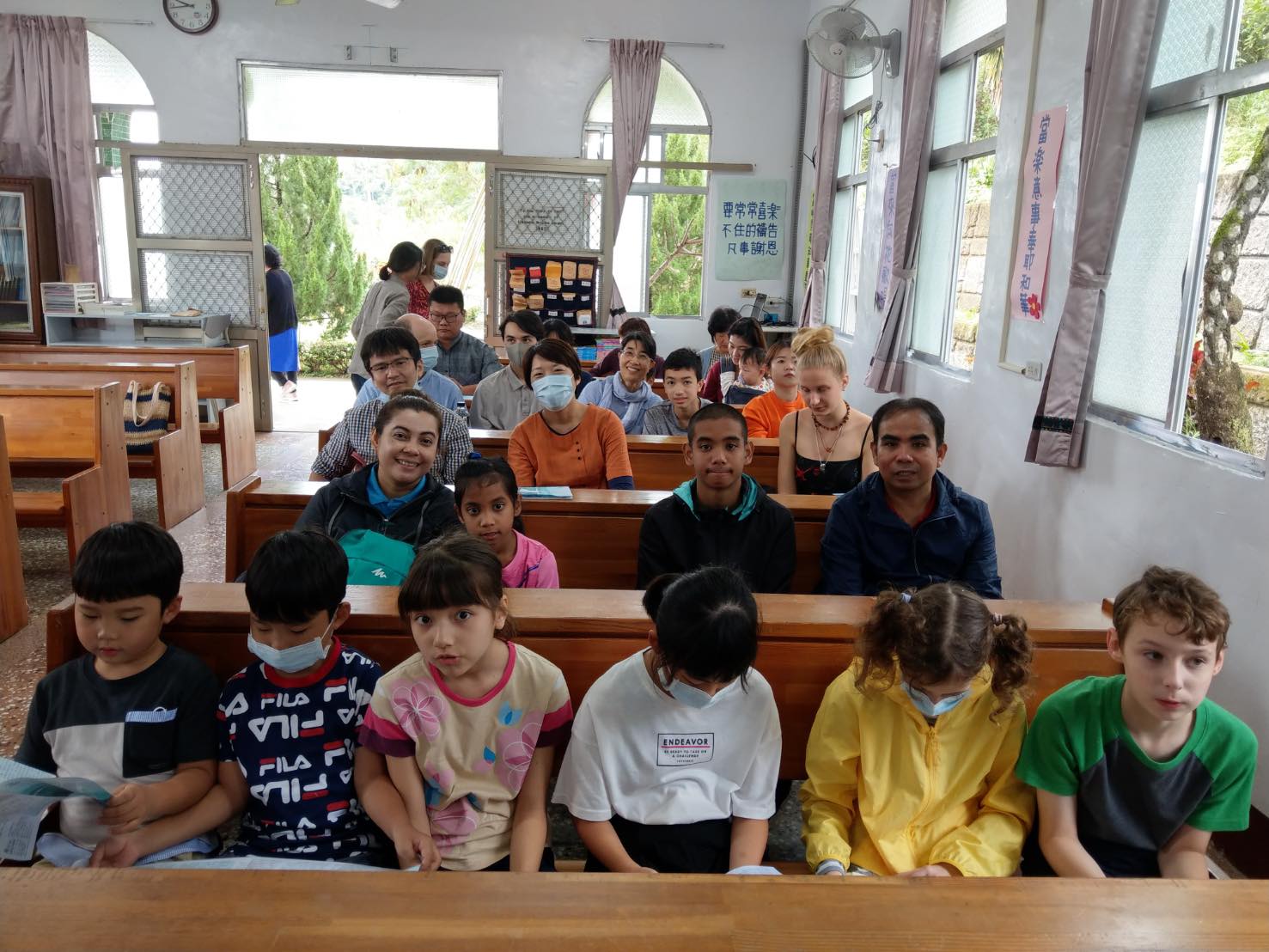A Letter from Jonathan and Emily Seitz, serving in Taiwan
Winter 2021
Write to Jonathan Seitz
Write to Emily Seitz
Individuals: Give online to E200383 for Jonathan and Emily Seitz’ sending and support
Congregations: Give to D507519 for Jonathan and Emily Seitz’ sending and support
Churches are asked to send donations through your congregation’s normal receiving site (this is usually your presbytery)
Subscribe to our co-worker letters
Dear friends,
In a graduate school seminar taught by Dr. Luis Rivera-Pagán, I learned the word “xenophilia,” literally, “love of the foreign.” We know its antonym, “xenophobia,” much better, and one of the main debates of our age is whether pluralism is possible, sustainable, or desirable. Divisions are often painfully visible. Sometimes being different is exhausting or confusing. Still, for Christians I believe xenophilia certainly fits with many of our biblical teachings: ‘love your neighbor,’ ‘the stranger shall be as your neighbor,’ ‘show your love for the alien,’ and on and on. In the Bible, there’s often a reciprocity to this love; you were aliens and so you shall treat the alien well. Strangers aren’t just tolerated or accepted; we are to love the stranger.
When I first came to Taiwan, I remember being surprised by how often I heard about the founding missionary in northern Taiwan, George Leslie Mackay. Mackay is almost an industry—there are puppet shows, manga (cartoon books and movies), short films, and even a Taiwanese opera about Mackay. There are probably half a dozen statues, including one on our campus, one at the arrival point where Mackay landed in Tamsui, Taiwan, and others at the different Presbyterian campuses. Next year is the 150th anniversary of Mackay’s arrival and there have been at least three dissertations written on him in the last few years. Our seminary does an annual pilgrimage to places he visited in his early years.
Mackay, I later learned, was unique in several ways. He was one of just three missionaries in this part of Asia who married a local woman, something which would have been illegal in much of the U.S. (Mackay was Canadian but had also studied in the U.S.) He’s also famous for this poem, which is his love letter to Taiwan:
O Formosa, so far away and so beautiful.
You are the love of my life. I love you all, each and every one of you, regardless of your origin and the past. To serve you with the only Good News I know. Here is my life for you, a thousand times and more…
This month I find myself deeply grateful for the Taiwanese community and its witness. Highlights of the last months have been talking to Taiwanese missionaries back from Southeast Asia, sharing about our work online with Cincinnati Presbytery, meeting with other missionaries in Taiwan (from Thailand, Korea, and Wales), and enjoying the Lunar New Year break. Emily invited kids from one of the churches where we serve to go ice skating at Taipei Arena during the long holiday as a chance to have fellowship outside of church. Kind of fun that there is a place for us to ice skate on a sub-tropical island! Emily also took the kids hiking in several different parts of northern Taiwan, and while we live in the city, we’re also grateful for this natural beauty. Through our children, we’ve learned to love Taiwan in some of the ways they love Taiwan, through its treats (boba tea is a current favorite), its people (the kids they play with at school and in the parks), and its places (forests and beaches and cities). After more than ten years here, this once strange holiday (Lunar New Year) is also our holiday and we’re grateful to share it with others.
Barbara Brown Taylor has a new book out called “Holy Envy,” where she writes about learning from other faiths. For me, I’ve been grateful for this expression, which expresses how we often can love a place, a person, or a culture that is wholly different from us and yet which also shows God’s great grace. I am not Taiwanese and I still often struggle with basic communication, navigation, and organization, but more and more I find myself envying parts of Taiwanese culture. Although I love my own God-given culture I can also deeply admire, respect, even love other cultures.
My prayer for during this time of Lent is that in the intractable difference of our societies you can also love those who are very different. We are also grateful for the ways you also show your love, through prayer and encouragement and invitations to share about this place we love.
The Seitz Family
![]() You may freely reuse and distribute this article in its entirety for non-commercial purposes in any medium. Please include author attribution, photography credits, and a link to the original article. This work is licensed under a Creative Commons Attribution-NonCommercial-NoDeratives 4.0 International License.
You may freely reuse and distribute this article in its entirety for non-commercial purposes in any medium. Please include author attribution, photography credits, and a link to the original article. This work is licensed under a Creative Commons Attribution-NonCommercial-NoDeratives 4.0 International License.


